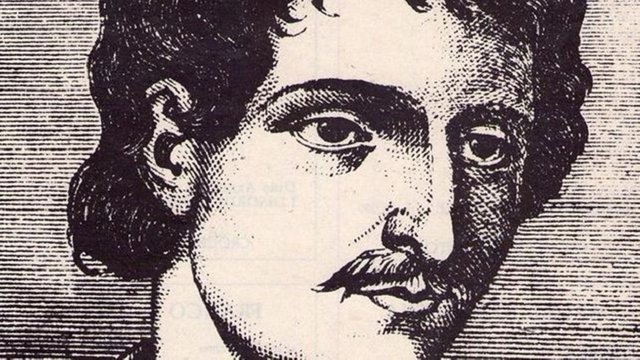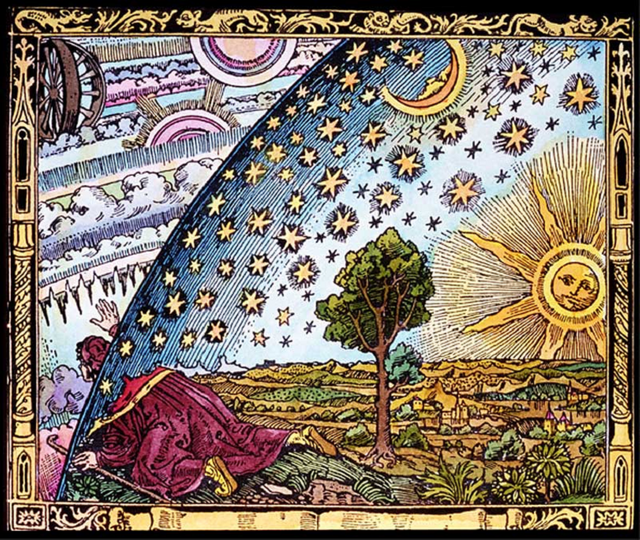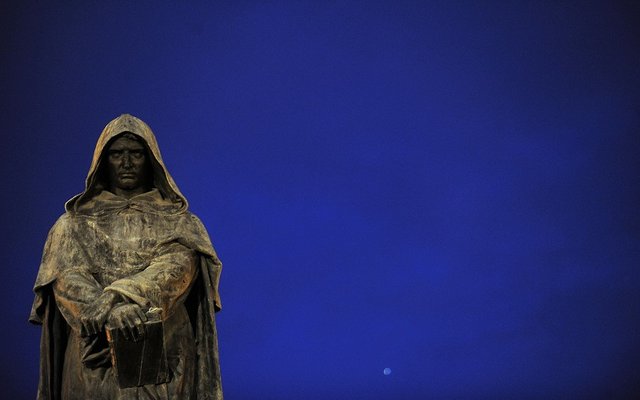[HISTORY] Why did they burn Bruno at the stake, and not Galileo?
In February next year, it will be 417 years ago that Giordano Bruno (1548-1600) was executed at Campo di Fiore in Rome. He has since been made a martyr of modern science, of free thought and a lot of other praiseworthy things. He's been seen as a greater martyr than Galileo Galilei; where Bruno died for his conviction of accuracy of the heliocentric, copernican world and a belief in an infinite universe, Galileo renounced his claims about earth's movements before the Inquisition - and thereby saved his own life. Above all, Bruno has been seen as a martyr for the opposition to what the men of the enlightenment and their descendants regarded as the Great Evil: the Roman Church and the Papacy.

But Bruno didn't die because he spread the doctrine of the copernican world system. First of all, he rather adopted heliocentrism because it fitted together with his peculiar philosophical and religious ideas - not vice versa. His concepts of astronomy were otherwise rather vague. Paradoxically, one might think, Bruno also became martyr for his mystical speculations, such as for the Hermetics in the Rosicrucian Order. They even place Bruno among the Rosicrucian Enlightened, despite the fact that Rosicrucianism hardly existed in organized lodges until the latter part of the 1600s - the first Rosicrucian manifesto, Fama Fraternitatis was released in 1614.
Second of all, it was hardly Bruno's thoughts themselves that brought him to the stake. There were plenty of freethinkers, mystics, magicians and people who spoke with the angels among his contemporaries, even in the Catholic world, and where the Inquisition was active.

What made a person a heretic was not necessarily what he said, but who he was. The accusation against Galileo, to take an obvious example, was not that he discussed and used Copernicus hypothesis, but that he claimed to have proven it. Thus, he basically stated that his authority was above both the Church as the entire scholarly community, and it was strictly speaking this claim that made Copernicus doctrine heretical. Before that, it had only been one hypothesis among others.
Giordano Bruno's own tragedy rather exists on a social and political level than on an ideological or religious. Or, rather, Bruno lived in a time when the social and political contexts were interpreted in religious terms. It wasn't possible to imagine interpersonal relations without religion.
The big problem with Bruno was that he made himself the enemy of everyone - not just those that traditionally are regarded as his opponents, but also those who initially were eager to support him. And he did it not only with his bizarre ideas, but also his complacency and arrogance. After his sojourn in Wittenberg also the Lutheran thinkers were prepared to burn him at the stake; that he was burned in Rome simply had to do with the fact that the Romans beat them to it. Intolerance and fear of freethinkers wasn't a Catholic signature more than it was a Protestant.

Bruno also made himself enemy of his patrons - a major error at a time when powerful patrons were literally vital for anyone involved in any form of intellectual activity. He was executed after eight years in prison, mainly because no one had any interest in protecting him any longer. In 1899 a statue was raised in his memory at Campo di Fiore. The catholic church has yet to issue an official apology.
— SteemSwede (art historian, forensic psychologist & painter)
I didn't realize this was a statue of Bruno.
Now I think I understand why Gordon White uses this image at runesoup.com.